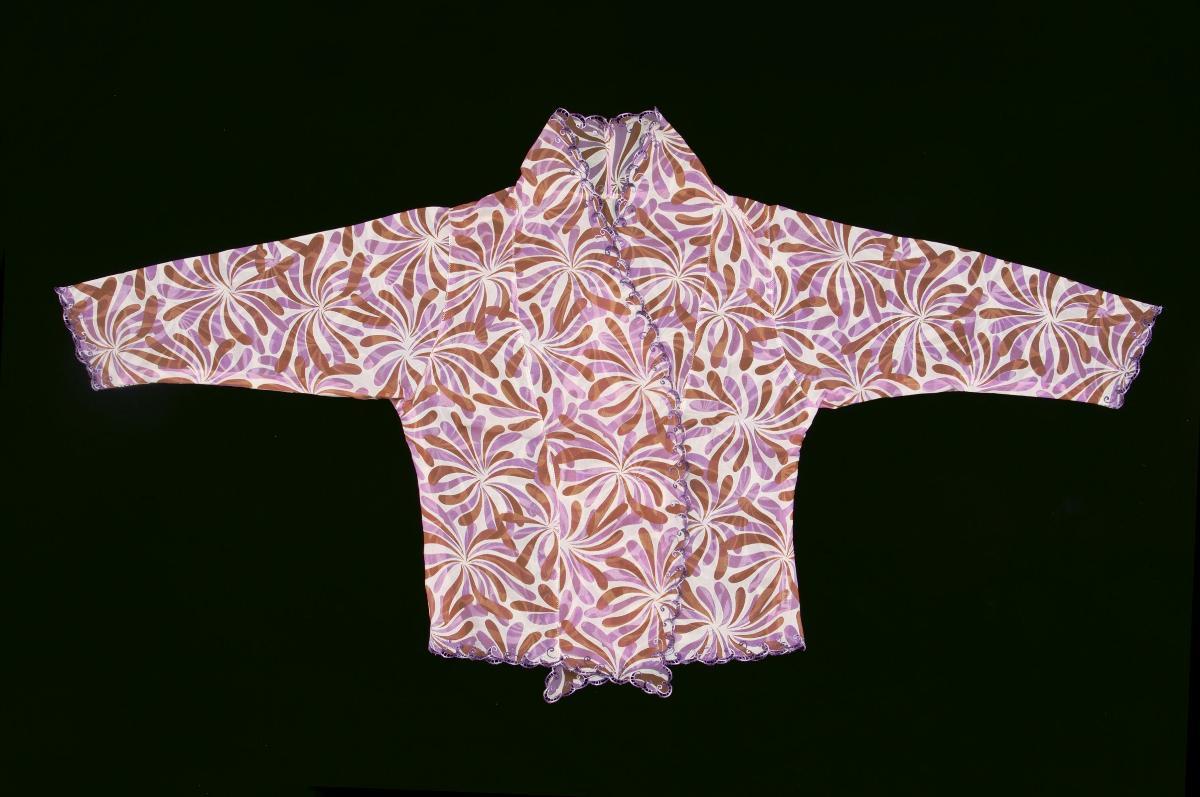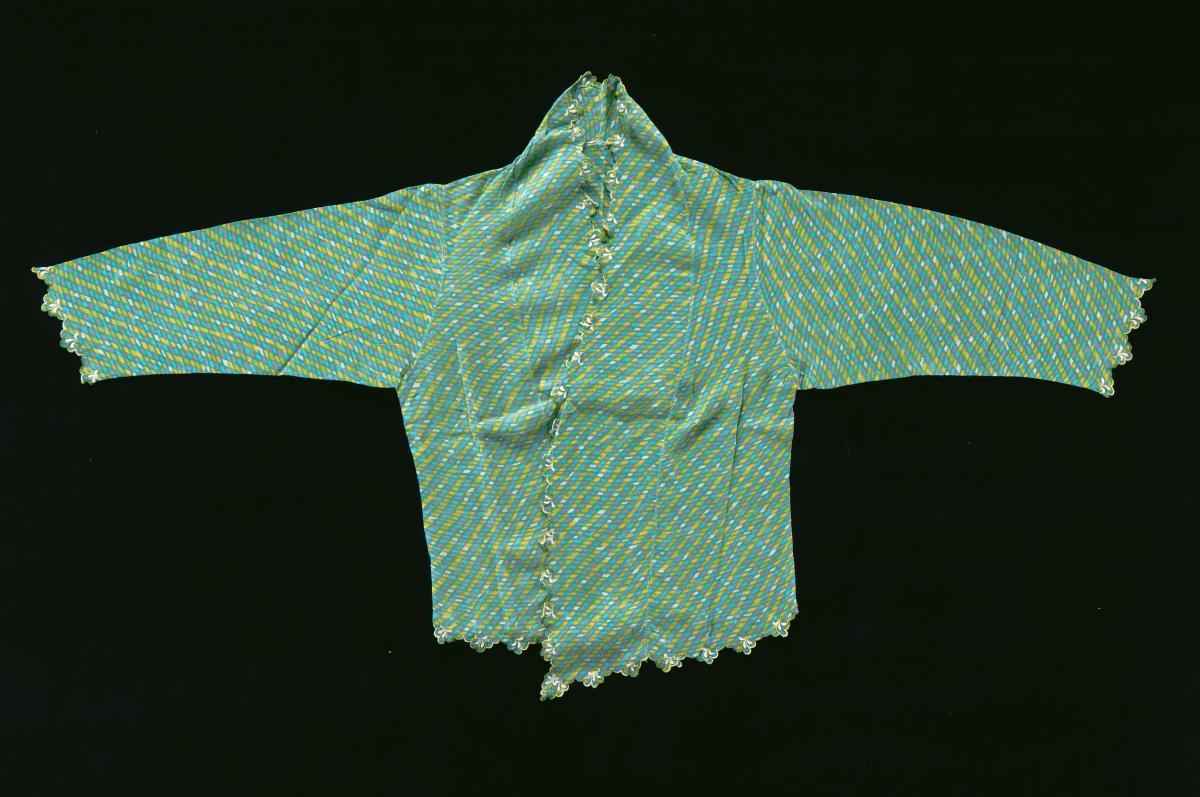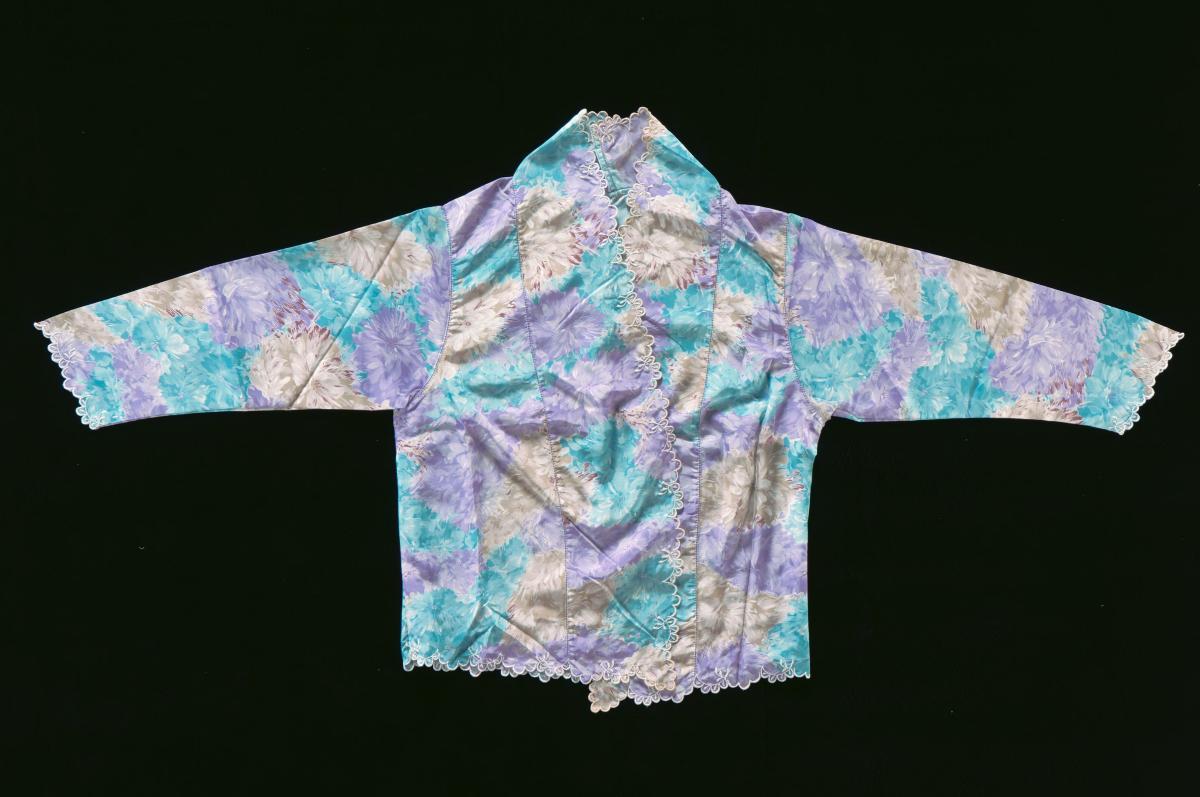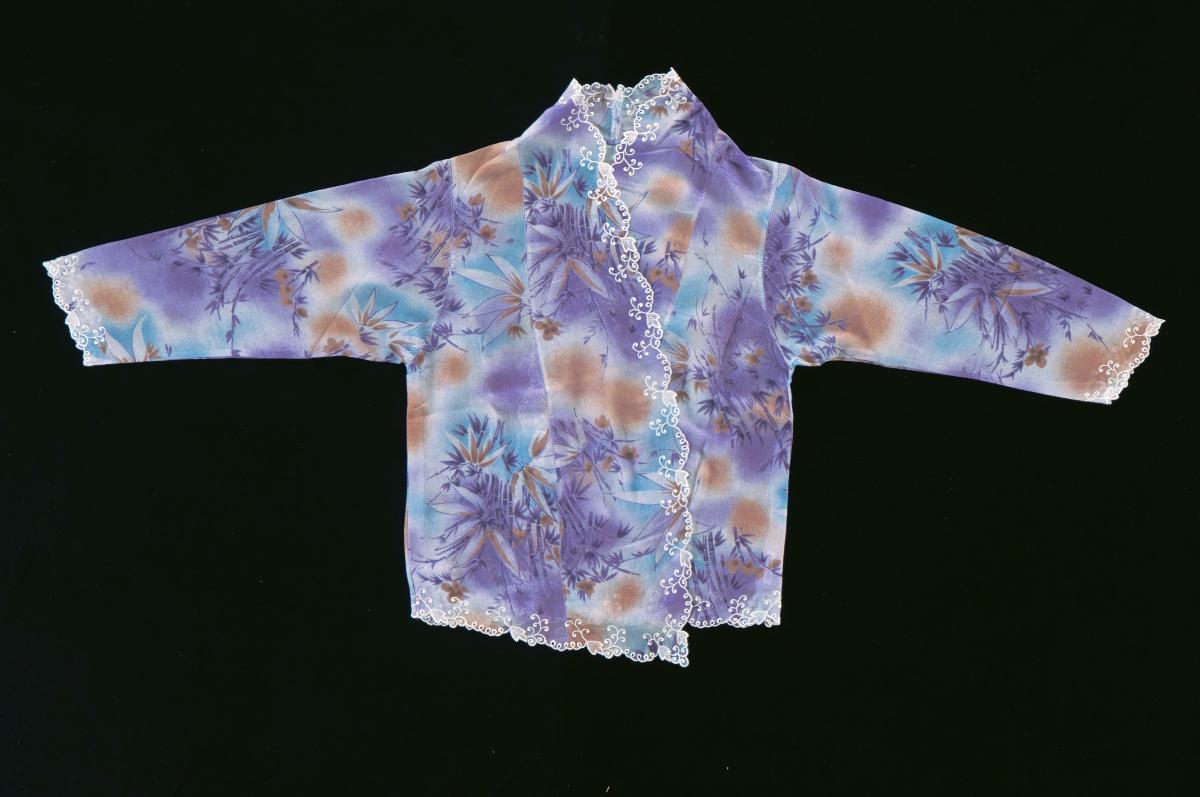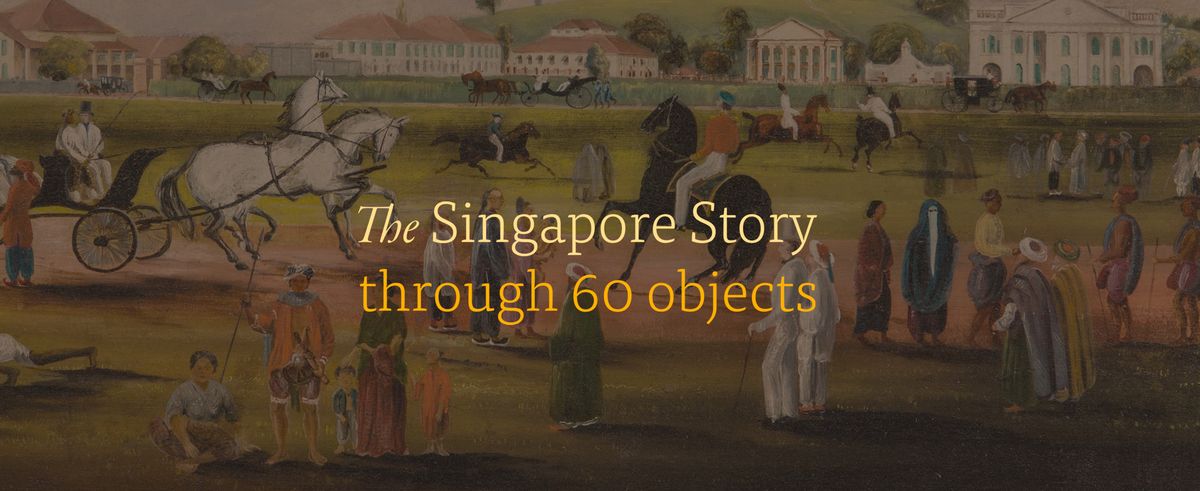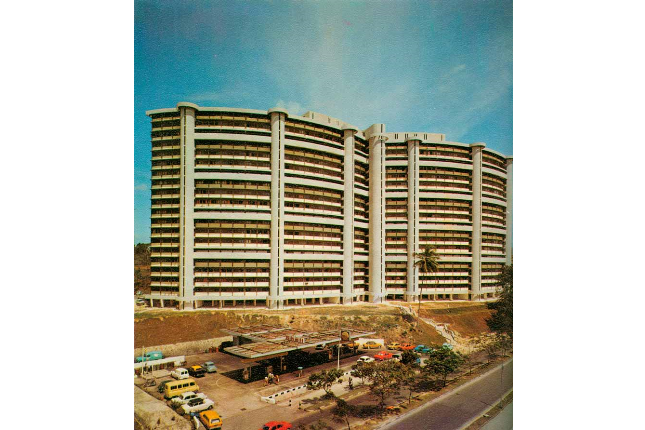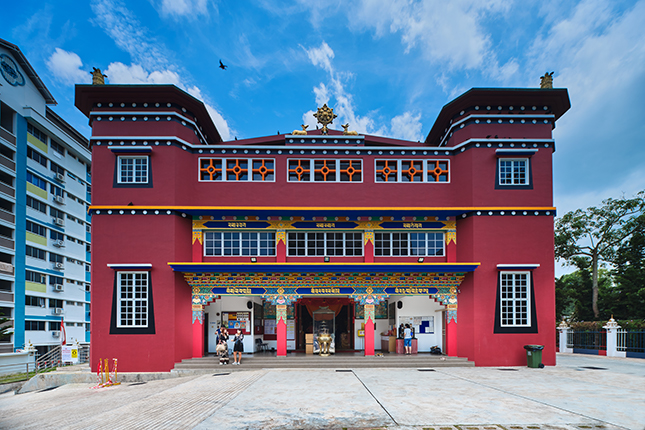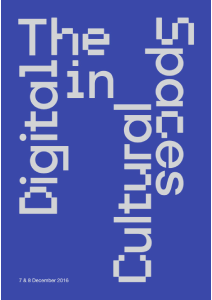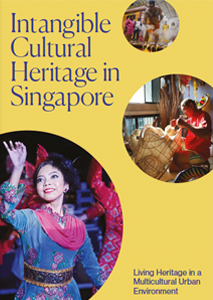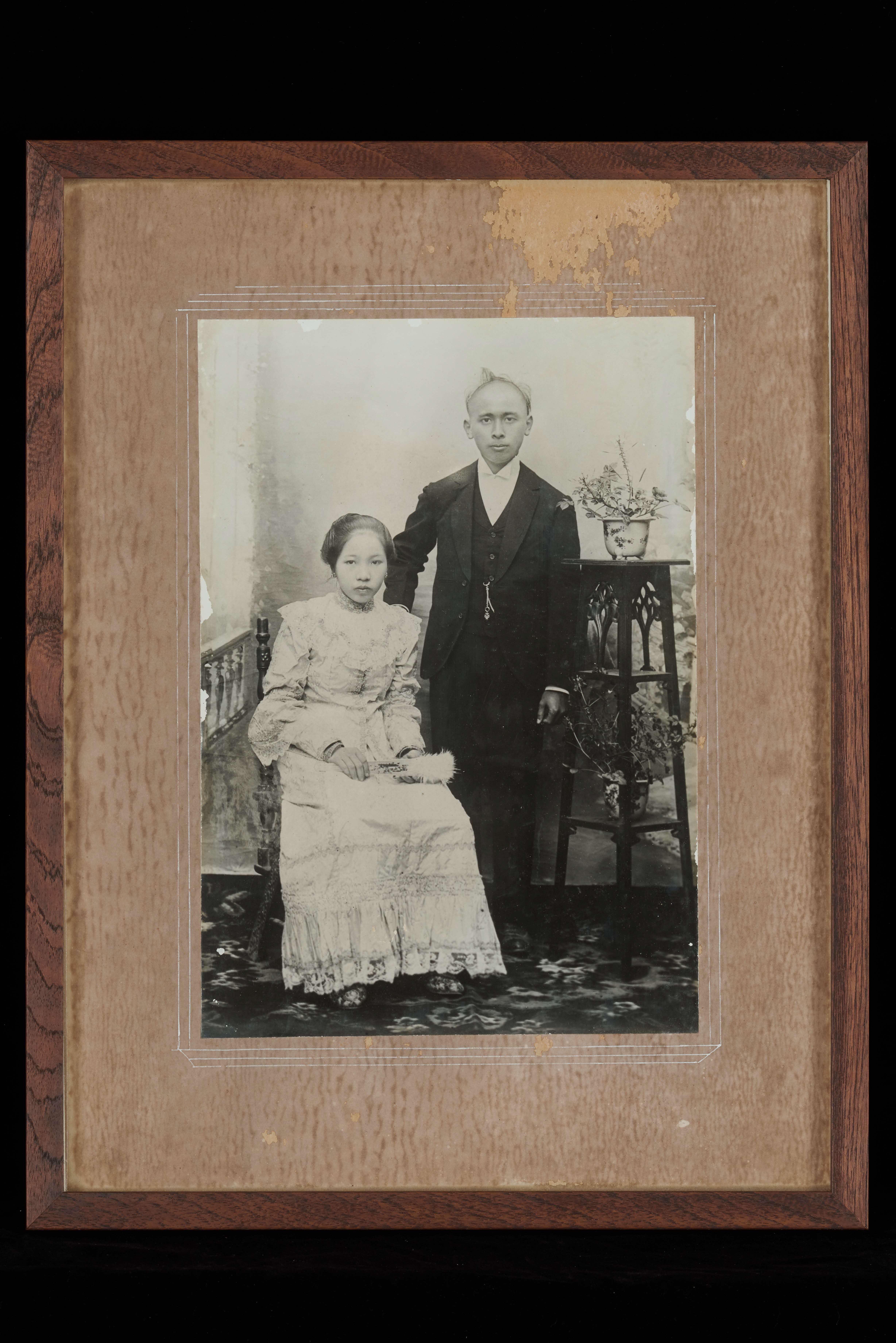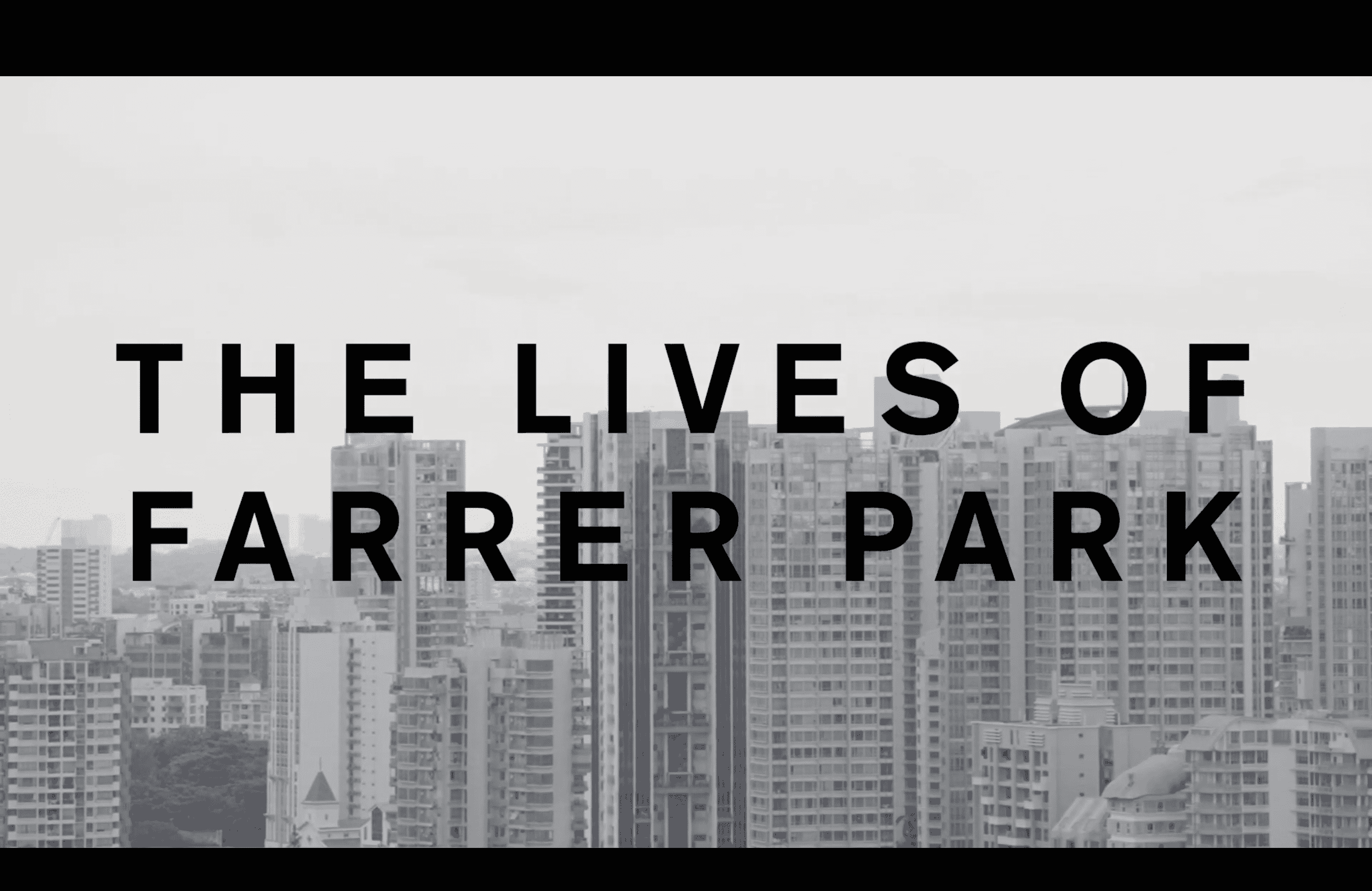This purplish kebaya features a two-coloured leaf-boat embroidery along the frontal hems and on the fringe of the sleeves.The Peranakan Chinese kebaya is a long sleeved, open blouse reaching to about waist-length. It is usually decorated with embroidery and lace on the frontal and outer hems, as well as the fringes of the sleeves. The garment has a v-shaped neckline and an open front, which is secured by three ‘kerosangs’ or brooches. A kebaya could be made from rubia or voile, which is a type of fine cotton fabric originating from France or Switzerland. Peranakans generally wore kebayas with geometric or floral designs in the 20th century and coloured kebayas became fashionable during this time. The kebaya came into prominence in the early 20th century, when it slowly replaced the knee length ‘baju panjang’ robe. It is worn with an inner camisole and paired with the sarong, which is a rectangular piece of dyed cotton cloth worn as a skirt by wrapping it around the waist. These garments became a distinct part of the identity of Peranakan women.




